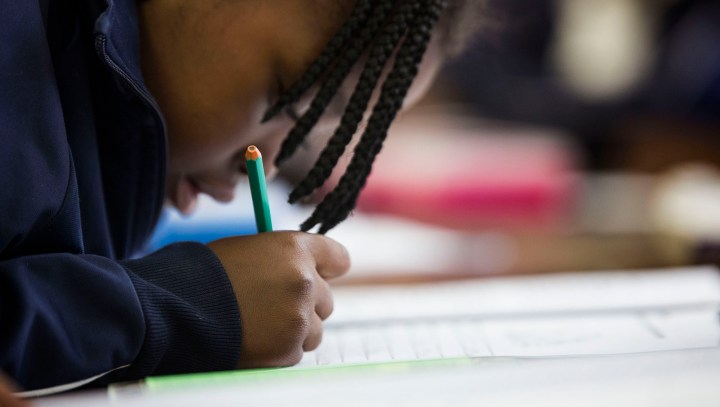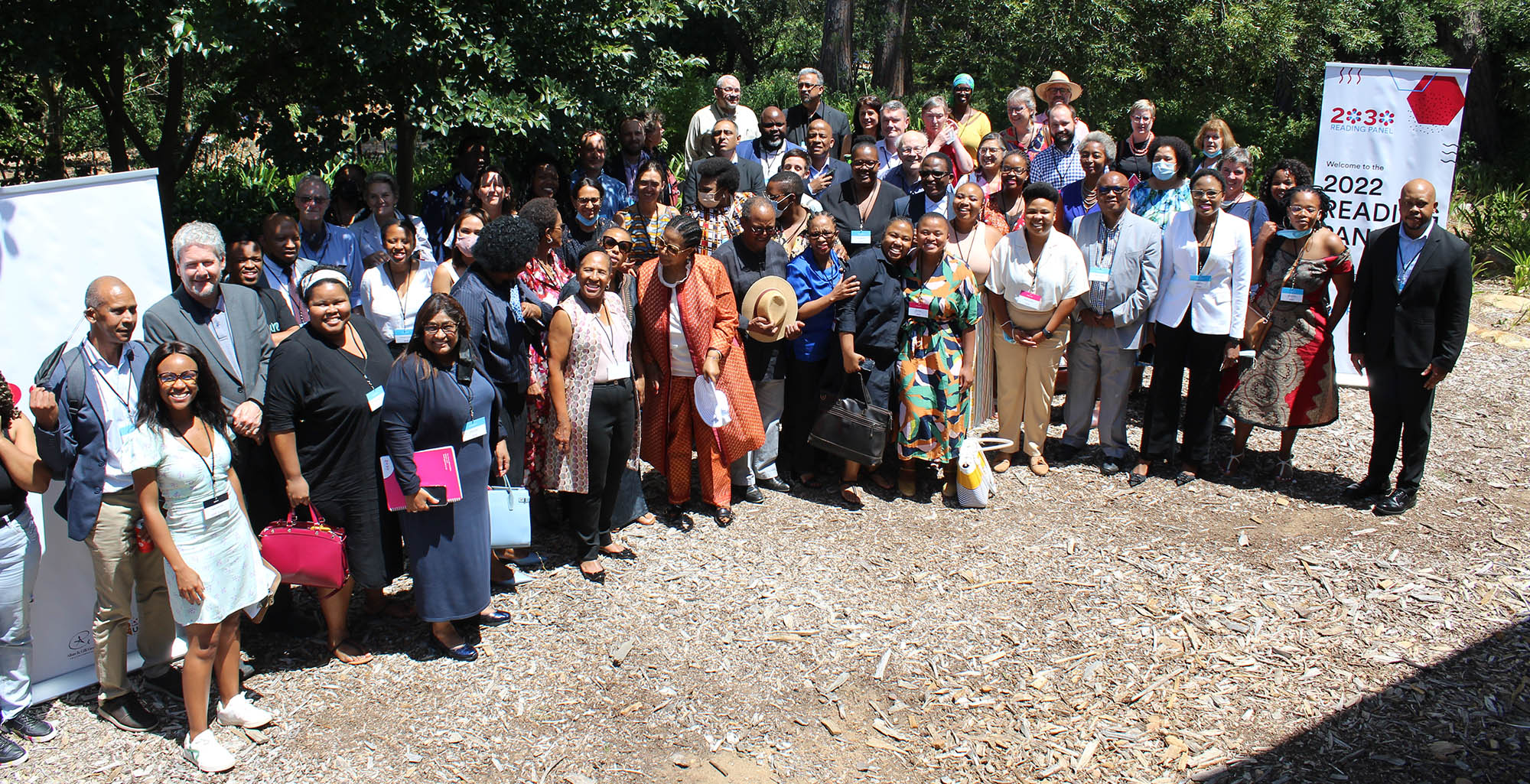2030 READING PANEL FINDINGS
South African education system ‘needs significant reform to address low literacy rates of children’

On the current trajectory of improvement in child literacy rates, it will be 2098 before all Grade 4s in South Africa can learn to read for meaning.
To improve the current trajectory of children’s literacy rates in South Africa, the education system needs to undergo drastic reforms or a state-wide system overhaul. In the current system, only 36% of the country’s Grade 4s will be able to read for meaning by 2031.
Figures from before the onset of the Covid-19 pandemic show that while the percentage of children in South Africa who can read is low, it had been improving gradually, with 13% of Grade 4s able to read in 2006, 18% in 2011 and 22% in 2016, according to Professor Nic Spaull, of the 2030 Reading Panel secretariat and an education economist at Stellenbosch University.
“It will be the year 2098 when all children in South Africa learn to read for meaning, on our current trajectory of improvement,” said Spaull. “Now, the question that we have to ask ourselves today is, what are the types of reforms that would need to be introduced to take us from this trajectory onto a different trajectory?”
Spaull posed this question at the inaugural gathering of the 2030 Reading Panel at the Stellenbosch Institute for Advanced Study on Tuesday. The independent civil-society panel aims to ensure that all Grade 4 children in South Africa can read for meaning by 2030, according to the 2022 Reading Panel Background Report.
“In the Reading Panel, we are a diverse group. We are multigenerational, multiskilled, multiracial, multi-everything… and we have young people who will make sure that this is a sustainable initiative that takes us to the next generation,” said Phumzile Mlambo-Ngcuka, former deputy president of South Africa and chair of the panel.

Audience and panel members at the 2030 Reading Panel at the Stellenbosch Institute for Advanced Study on 1 February 2021. The independent civil-society panel aims to ensure that all Grade 4 children in South Africa can read for meaning by 2030. (Photo: Tamsin Metelerkamp)
While the panel already had its work cut out for it before the Covid-19 pandemic, the past two years have seen the education system undergo serious setbacks. The learning loss for children as a result of school closures and rotational timetables amounts to about 1.3 years, said Spaull.
“If you think of our rates of progress, that’s the equivalent of wiping out 6½ years of progress, because there were improvements in the system before the pandemic.”
While Mlambo-Ngcuka expressed her thankfulness that the Department of Basic Education had put an end to rotational timetables, allowing schools to reopen for full attendance, she emphasised the need to move quickly in addressing the gap that had been created by the pandemic.
“In general, children flounder when they start school at foundation level, but with Covid, the situation is much more complex – and we cannot put the cost of Covid on the shoulders of the children,” she said.
The 2022 Reading Panel Background Report contained four recommendations for the government that would “take South Africa much closer to the 2030 goal”:
- Implementing a universal standardised assessment of reading at primary school level;
- Moving beyond slogans and symbolic campaigns to a costed and budgeted plan to fix the reading crisis in the country;
- Providing a standard minimum set of reading resources to all Foundation Phase classrooms (grades R-3); and
- Implementing a university audit of pre-service teacher education programmes.
Looking to the teachers
Part of improving children’s literacy levels and facilitating nation-building should involve restoring teachers to a winning platform in our society, said Bobby Godsell, former CEO of gold mining company AngloGold Ashanti.
“So we admire not CEOs, not just sportspersons, and certainly not TikTok,” said Godsell. “If we want to realise the rainbow and we want to go back to the cues of ’94, we want to go back to the excitement of 2010, it’s the teacher. We want the very best and brightest people in teaching. We want teachers to be revered by the local communities.”
However, South Africa is currently facing severe inadequacies in initial teacher education, said Spaull.
“Teachers require the lowest number of matric points to enter university and are arguably the weakest matriculants at university,” he said.
The 2022 Reading Panel Background Report states that many Bachelor of Education programmes lack coherence around the fundamentals of teaching reading at primary school level, and do not allocate sufficient time to the practical elements of teaching reading.
“The Centre for Higher Education (CHE) and/or the Department of Higher Education and Training (DHET) should implement a sector-wide audit of Foundation Phase programmes with ongoing certification contingent on meeting reasonable requirements regarding time allocated to the teaching of reading and mathematics,” stated the report.
Addressing the issue of teacher training is particularly important given the incoming wave of teacher retirements across South Africa. The report shows that in 2020/21, 45% of all publicly employed teachers were 50 years or older and therefore due to retire in the next 10 years.
“This is unprecedented. We have never seen something like that happen before and we are struggling to find other countries that have had such a large demographic change,” said Spaull.
In light of this, the country will need to increase teacher production by 50% within the next five years, and double teaching production by 2030, said Spaull. As South Africa currently produces about 26,000 teachers per year, this number will need to increase to 44,000 by 2025 and 50,000 by 2030, he added.
“This is a problem for the entire education system, but it also is a potential opportunity, that if you’ve got half of teachers that are going to be leaving the system, and there’s a lot of question marks about the quality of the teachers that are currently in the system, it’s possible that the new cohorts of teachers that are coming in might be able to raise the quality of teaching that happens,” said Spaull.
Elinor Sisulu, founder and executive director of the Puku Children’s Literature Foundation, considered the upcoming wave of retirements an opportunity for the digital upskilling of the country’s teaching body.
“Education is transforming globally, digitally,” said Sisulu. “So, the fact that you have older teachers retiring, and your younger teachers coming in, means that you will have more digitally savvy teachers, and you have to take advantage of the digital space.”
The ability to read with meaning is important since it not only allows children to participate in the socioeconomic development of the country, but also ensures that they function optimally in whatever space they find themselves, said Professor Vuyokazi Nomlomo, deputy vice-chancellor for teaching and learning at the University of Zululand.
“[Children] must be able to participate within their own communities. We need readers, we need critical thinkers, we need problem solvers… and through reading, that’s where the skills are acquired,” said Nomlomo. DM

















Comments - Please login in order to comment.